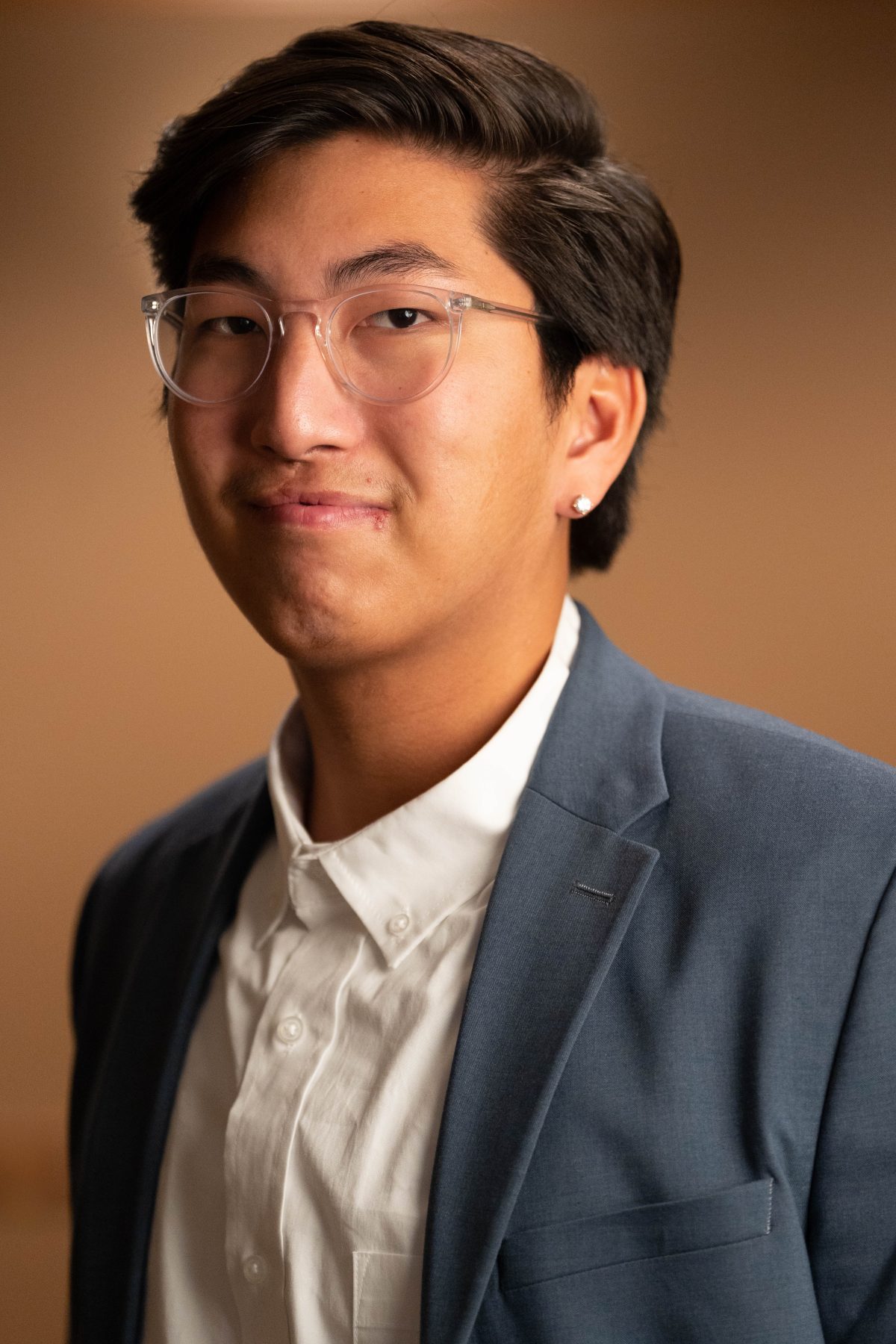
Meet Rabi Decatorsmith, a second-year adviser with a passion for changing lives.
As part of the Missouri College Advising Corps, Decatorsmith is on a mission to empower high school students to reach their fullest potential. From navigating college applications to providing support during challenging times, Decatorsmith’s dedication knows no bounds.
Decatorsmith works at William Chrisman High School in Independence, Missouri, where he says the most rewarding aspect of his service is witnessing students’ growth and achievements.
Read on for a Q&A with Decatorsmith.
As a second-year adviser, have you observed changes in college-going trends, or college-going culture, or students’ interests?
As I reflect on this second year, I’ve observed a growing interest among students in attending Metropolitan Community College in Kansas City online. Many of them, having experienced online learning during the pandemic as freshmen, seem accustomed to it now. However, I believe they may underestimate the challenges of online classes, lacking the same level of interaction with professors and peers.
Additionally, the influence of social media, where success stories of influencers abound, has led some students to prioritize entrepreneurship over traditional education paths. Overall, I believe in empowering students to realize that college is attainable for them. Encouraging them to have backup plans, like attending community college, is essential for their long-term success. Ultimately, my goal is to help students recognize the opportunities available to them and make informed decisions about their futures.
How have you supported first-year advisers in being the best they can be for the students they serve? How has that enhanced your experience now being a second-year adviser?
Last year, as a first year in this role, I felt nervous and uncertain, especially since it was my first real job after graduating college. Relocating from Columbia to Kansas City added to the challenge, but I saw it as an opportunity for a fresh start. Having a supportive mentor during that transition was crucial, and it got me thinking about how I could pay it forward. I’ve always been social, and I knew I could leverage that strength to mentor others effectively. The idea took shape this year when I was assigned my first peer mentee, followed by another. I’ve established a routine of checking in with them every Monday, whether through texts or in-person visits to their schools. These interactions provide them with a safe space to discuss their struggles and challenges, and I do my best to offer support and understanding.
Attending the national summit in San Diego with them further strengthened our bond, allowing for more open and personal conversations beyond just work-related topics. As the school year progresses, I’m committed to being more present in their schools, especially with after-school workshops becoming more frequent. I firmly believe that the more support they have, the better. Collaborating with my mentees has been eye-opening, as we exchange strategies and insights tailored to our respective schools. Their perspectives have enriched my own approach, leading to mutually beneficial outcomes. Overall, it’s been an enriching experience, and I’m eager to continue learning and growing alongside them.
How do you measure success with students?
Unlike the quantifiable metrics we often rely on, success for me transcends numbers. It’s about the personal connections I forge with each student. I strive to meet them where they are, understanding that their backgrounds and circumstances vary greatly. Whether it’s guiding a student through financial aid applications or simply offering a listening ear during a tough day, my approach is rooted in empathy and flexibility. I prioritize their well-being above all else, recognizing that their emotional state impacts their ability to tackle academic tasks. Interpersonal skills play a significant role in my interactions with students. I adjust my tone and energy level to match theirs, ensuring they feel understood and supported. Whether they’re reserved or exuberant, I aim to create a comfortable environment where they can thrive.
How would you explain your service with MCAC to someone who has no idea what you do?
At its core, my role is a service position. I see it as a unique opportunity to make a difference in low-income schools across Missouri, where higher education is highly valued, but access can be limited. Every day, I step into these schools as a college adviser, dedicated to empowering students to pursue and succeed in higher education.
Whether it’s assisting with college applications, scholarships, financial aid, or exploring alternative paths like trade school or military careers, my mission is clear – to provide students with the resources they need to make informed decisions about their futures. Having lacked this guidance myself during high school, I understand the importance of this role in shaping students’ post-secondary aspirations. Being able to educate students on the opportunities available to them and helping them realize their potential is incredibly fulfilling for me. That’s the essence of what we do as college advisers, and it’s why we’re committed to serving these schools.
What has been the most rewarding aspect of serving at William Chrisman High School?
The most rewarding aspects of my role are multifaceted. It’s not just one thing that brings me satisfaction; rather, it’s the culmination of experiences and seeing students thrive in their own unique ways. Whether it’s celebrating a student’s success in submitting a college application or witnessing their personal growth over time, each moment holds its own significance.
Seeing seniors graduate and pursue their chosen paths, knowing that our support played a pivotal role in their decisions, is particularly gratifying. Witnessing the transformation of students who initially struggled but eventually find their footing and excel is incredibly rewarding. Moments like these, where I see tangible growth and positive outcomes, are what make this position so meaningful to me.